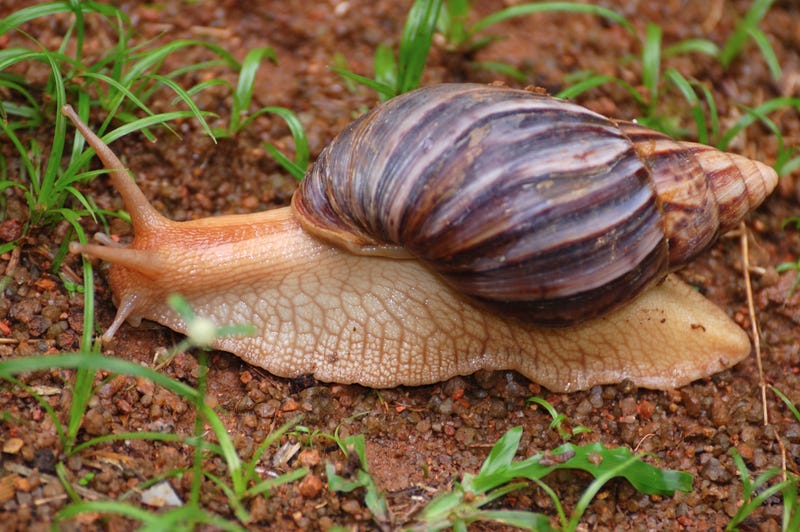
Snails that can reach the size of an adult fist have put three Florida communities into quarantine, the Florida Department of Agriculture and Consumer Service announced this week.
These giant African land snails (GALS) are one of the “most damaging snails,” and can cause extensive damage to agriculture, said the department. It also said they can carry the rat lungworm parasite that causes meningitis in humans, according to the department.
Already, the snails have been eradicated in Florida twice. During the first eradication in the 1960s, efforts took a decade and cost $1 million, per the U.S. Department of Agriculture. Snails were again detected in 2011 and eradicated in 2021.
“Giant African land snails are illegal to import or possess in the United States without a permit,” said the Florida Department of Agriculture and Consumer Service. However, they have entered U.S., possibly as hitchhikers on imported cargo. They have also been illegally imported for classroom exhibits, as pets or for food.
Quarantines for the snails are currently active in Broward, Lee and Pasco counties. Snails were detected in Lee going back to December, and this month in both Broward and Pasco.
“It is unlawful to move the giant African land snail or a regulated article, including, but not limited to, plants, plant parts, plants in soil, soil, yard waste, debris, compost or building materials, within, through or from a quarantine area without a compliance agreement,” said Florida officials.
Treatment efforts by the FDACS’s Division of Plant Industry involve metaldehyde-based molluscicide, or snail bait. This treatment is labeled by the U.S. Environmental Protection Agency for residential use.
While giant African land snail appearance varies, those previously eradicated in Florida had dark brown shells with grayish-brown flesh, as well as light to dark brown shells with milky white flesh.
“The lighter fleshed snails are sometimes referred to as “albino GALS” and are more desirable in the illegal pet trade,” said the department.
“If you are interested in adopting an invertebrate pet, please visit the USDA Invertebrate Pets website.”
Anyone who believes they have spotted a giant African land snail should email a photo for identification to DPIHelpline@FDACS.gov.


